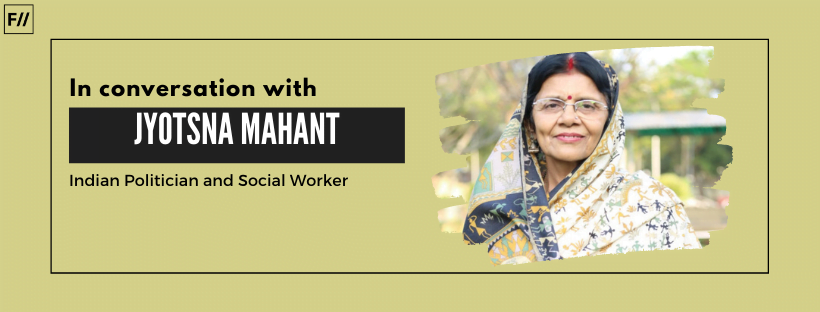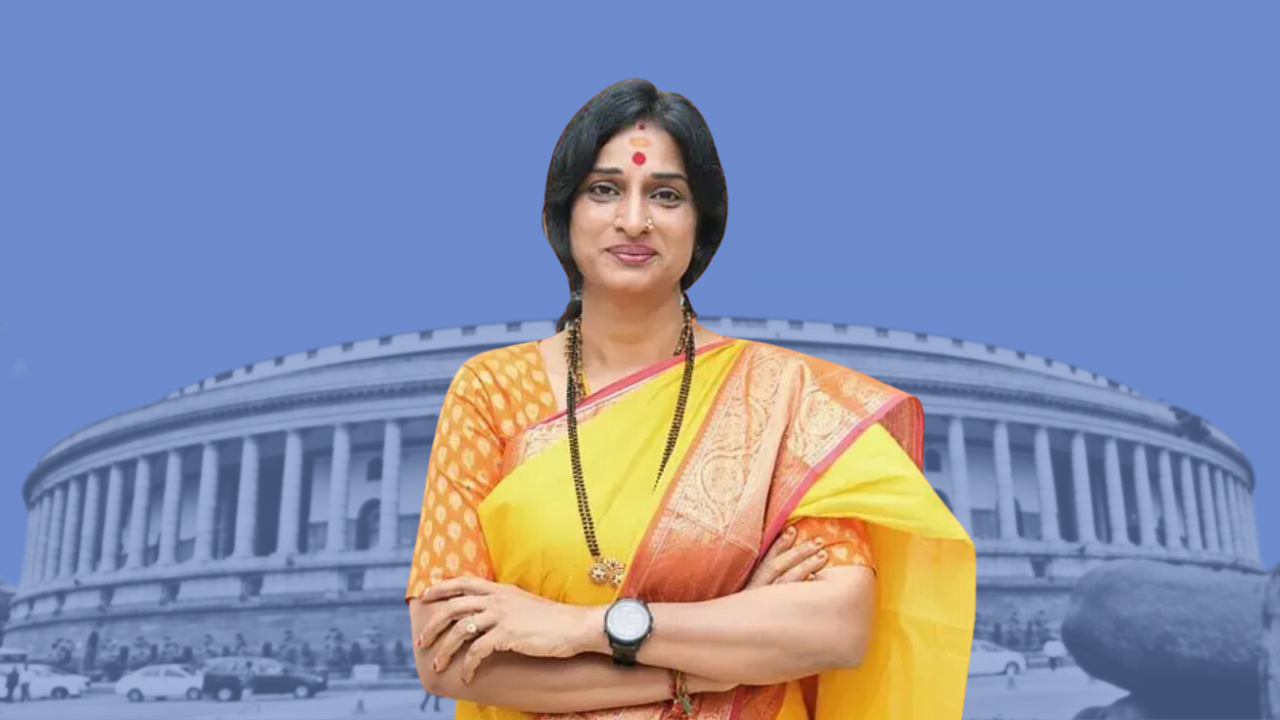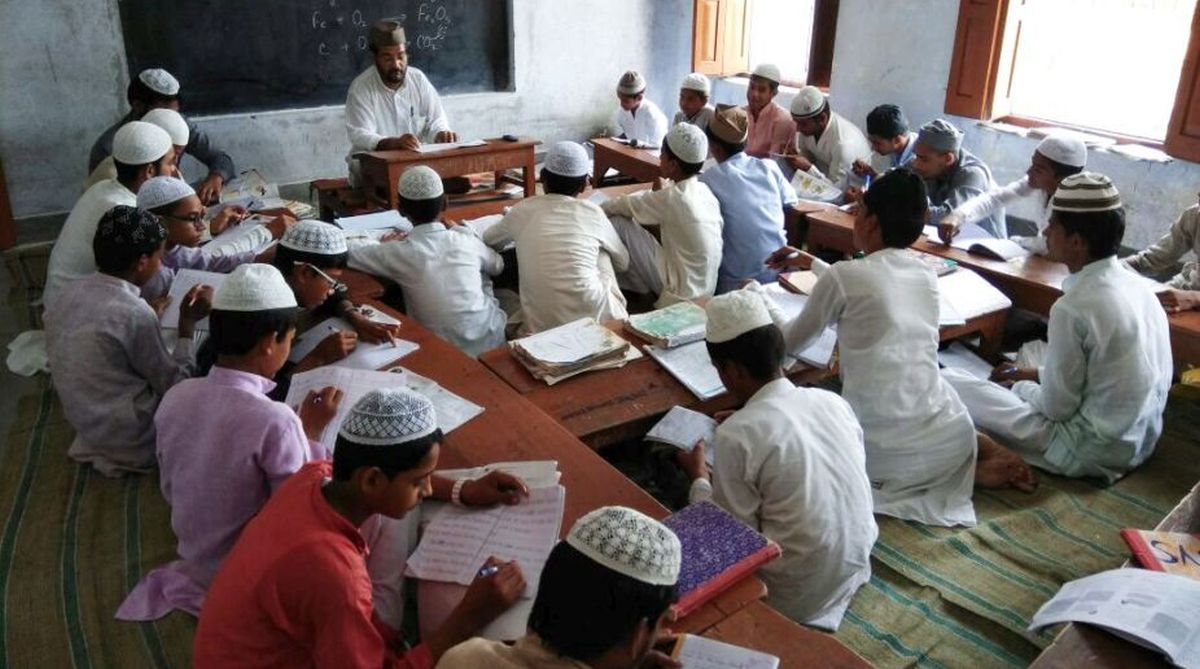Congress’ lone female MP in Chhattisgarh, Jyotsna Mahant’s entry in politics is a result of nepotism. It’s the same as how several women who belong to political parties enter politics, but what is unique about her is that she has already been working in social work for close to four decades now. The MP who abhors the term ‘politician’ and calls herself a social worker for life, Mahant got elected from Korba, Chhattisgarh in the 2019 Lok Sabha election.
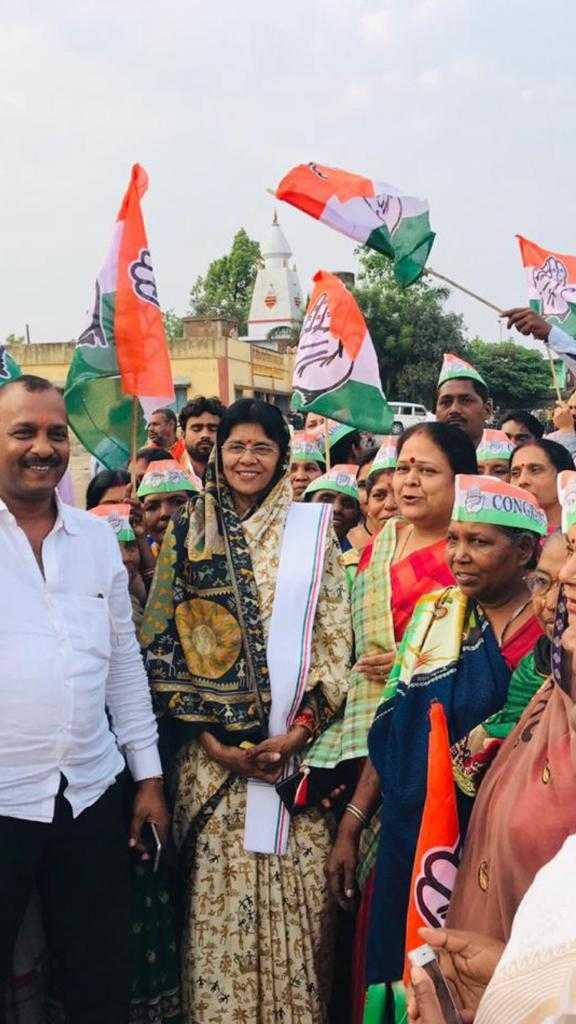
In this telephonic interview, the 65-year-old MP shares her journey into becoming a reluctant politician, her work for women’s empowerment, how women can enter politics and much more.
You belong from a political family, so how did your foray in politics take place?
Jyotsna Mahant: I was married into a political family, so in 1980, when I married my husband, Charandas Mahant, currently the speaker in the Chhattisgarh Legislative Assembly, he was barely 25. He had become an MLA in the Madhya Pradesh Legislative Assembly from Champa. However, I was from a family of a civil servant. My father-in-law, Bisahu Das Mahant, was also a seasoned politician who had been a six-time MLA. My husband, since 1980, has been an MLA four times and an MP four times as well.
How I entered politics is an interesting story as I never wanted to become a politician and I still don’t consider myself one. I have worked for over three decades along with my husband as a social worker and I will always remain that.
Recently when in Chattisgarh, Congress formed its government at the state level, my husband fought the Vidhan Sabha election and won, and became the speaker in the Chhatisgarh Legislative Assembly. The Lok Sabha election happened after the Vidhan Sabha election, and Congress wanted a winnable candidate as the ‘Modi wave’ was strong. Since my husband was already the speaker in the assembly, so when the party did a survey, my name cropped up. This was because I have been actively involved in social work in Madhya Pradesh and Chattisgarh for the last 39 years. I would work behind my husband by going to the villages and towns, listening to people’s concerns and taking them to my husband who would then raise the issues with the government. People must have seen my work and that’s why my name came up in the survey and that’s how I was given the ticket.
While I worked as a social worker, I was never interested in politics. I am accepting this today. Since my husband had become more responsible and accountable as a minister, he wouldn’t be able to involve himself in people’s sorrow and happiness all the time; so I would fill that gap and meet people on the ground.
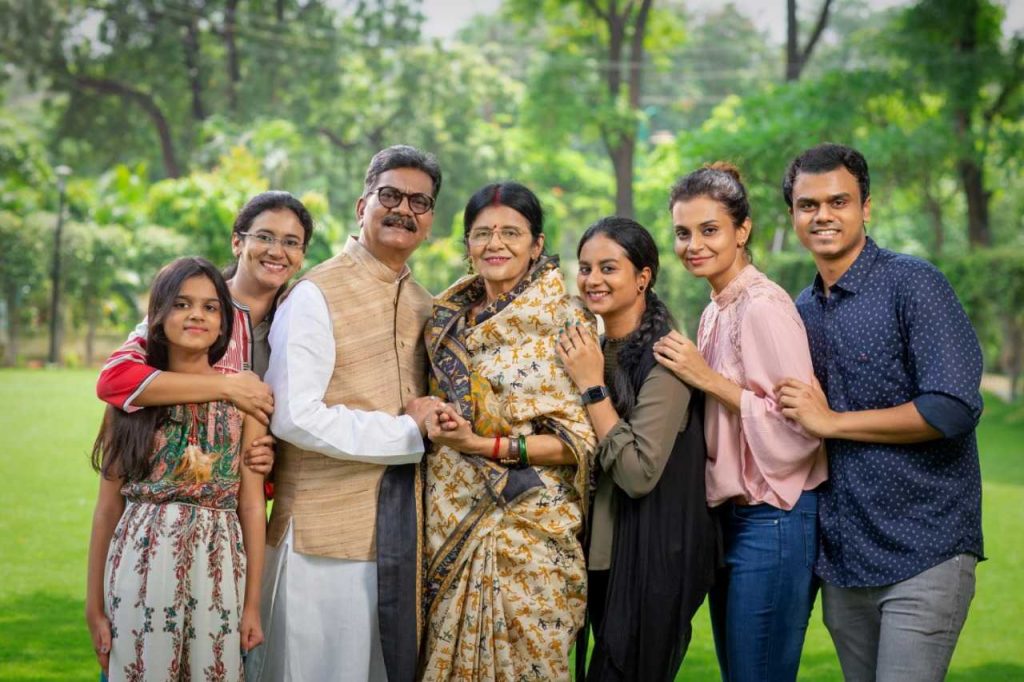
So when you were offered the ticket, how did you become interested to contest the election?
Jyotsna Mahant: I didn’t have any interest in contesting the election but members of the party and the general public put me under a lot of pressure to fight the election. They were of the opinion that since my husband can’t fight the election, I must. With social work in my head and heart, I contested the election. Secondly, the situation was such that Congress wouldn’t have been able to win the election if I hadn’t fought so it became mandatory for me to fight. The condition was such that either I had to fight or my husband did. But since my husband had won the MLA election only six months ago, if he had left that seat for the MP election, it would have been a breach of trust so eventually, I gave in.
Tell us about the shift from being a social worker to now a politician?
Jyotsna Mahant: I used to love my work as a social worker where I would spend my time with the people without the baggage of being an elected representative. I had the leverage to push for solutions and resolves for people’s woes by sometimes forcing my husband to do some development work. But after becoming a politician, I understand that you cannot achieve everything that you set out for, especially when there are different governments in the center and the state.
Korba is famous for its wide-spanning coal mines like Gevra Area, which is Asia’s one of the biggest coal mines. There was some discussion going on around the central government wanting to privatise it so I fought against it and stood by the mineworkers and currently that has been stalled. With the COVID-19 pandemic, I also pressurised the coal authorities to continue to compensate the workers during the lockdown.
What are some of the challenges faced by Korba and what have been some of your initiatives to tackle those?
Jyotsna Mahant: Korba is famous for its wide-spanning coal mines like Gevra Area, which is Asia’s one of the biggest coal mines. There was some discussion going on around the central government wanting to privatise it so I fought against it and stood by the mineworkers and currently that has been stalled. With the COVID-19 pandemic, I also pressurised the coal authorities to continue to compensate the workers during the lockdown.
My work, mostly revolves around fighting for the concerns of the marginalised and how we can reduce the challenges faced by the economically challenged sections of my constituency. I raised the concerns of teachers who weren’t paid their arrears as per the seventh pay commission with Minister of Education, Ramesh Pokhriyal ji and he took it up successfully. Other than that, people in the villages face issues regarding water shortage, electricity, people struggle to make ration card or procure pension fund. We try to sort these issues out as much as we possibly can but due to COVID-19 lockdown in the last few months, it has been difficult to work on these issues.
Now with our Members of Parliament Local Area Development Scheme (MPLADS) funds revoked, it has become difficult to do any development work but still, because we have Congress government in Chhattisgarh, I have negotiated with the CM to allocate some funds for road repair and construction work.
How has your experience been being an MP for the first time in one and a half years?
Jyotsna Mahant: It has been a very unique experience, but I haven’t been able to do field visits as much as I would have wanted to because of various reasons. As a woman and despite being an MP, I had to visit my pregnant daughter to take care of her as I had my responsibility towards her as well. Then COVID-19 hit, so again field visits have hampered. But I still went out as much as I could and now with unlocking happening in the country, I have again started to visit places again and heeding to people’s concern.
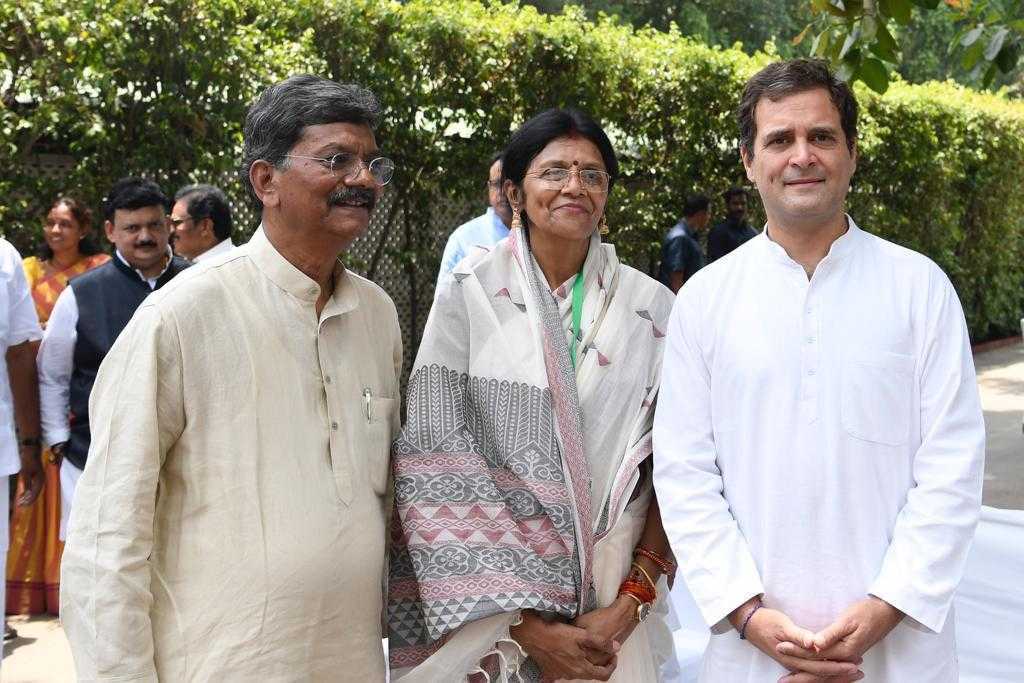
Additionally, a new district has been formed here called Gaurela-Pendra-Marwahi where we are now working to build a medical college, Kendriya Vidyalay and Navoday Vidyalay. I am trying to ensure the children get English language education.
Also read: State Govt. Doesn’t Give Anganwadi Workers Their Due: Jharkhand MP Annapurna…
Has there been any women empowerment initiatives run by your government in Korba?
Jyotsna Mahant: We are running skill development programs for women here working in the silk-making industry. This ensures that even if they are illiterate, they can still sustain themselves. Kosa silk-making business has a lot of scope in my constituency so we are providing skill-training so women of all economic-level can earn a living for themselves. We also have SHGs running which help at least 10-15 families by providing training in different skills like pickle-making etc., to women of these families.
My goal is to educate all the women of my constituency so they are at least able to read and write. We want to empower women to a point so they are able to earn a livelihood.
We are running skill development programs for women here working in the silk-making industry. This ensures that even if they are illiterate, they can still sustain themselves. Kosa silk-making business has a lot of scope in my constituency so we are providing skill-training so women of all economic-level can earn a living for themselves. We also have SHGs running which help at least 10-15 families by providing training in different skills like pickle-making etc., to women of these families.
How have you been able to manage COVID-19 pandemic from spreading in your constituency?
Jyotsna Mahant: We have 548 total positive cases in Korba comprising of 149 cases in rural areas and 399 cases in urban areas. Total active cases are 241 and seven deaths. We have so far collected 6857 samples for the RT-PCR test.
Initially, when I had anticipated the lockdown, I gave 25 lakh rupees each from my funds to three districts so they can stock sanitiser machines, PPE Kits, masks etc. in their districts. I also donated one crore each to both state and central government funds and I was the first MP to have donated my one month’s salary to my constituency so it can help economically-challenged people in fighting against the deadly disease.
We also strictly followed hygiene and safety protocols and that’s why the virus hasn’t been able to spread widely. Our villages are mostly clean with only a few cases per town.
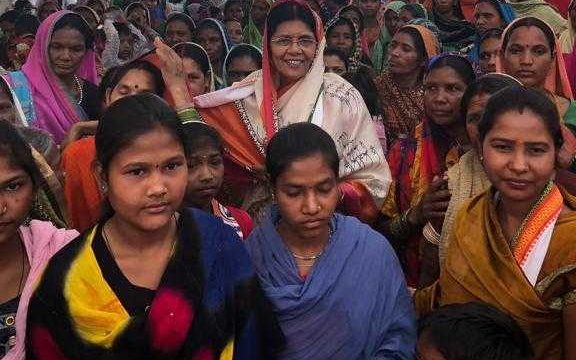
How difficult is it for women to come into politics for those who don’t have a political connection?
Jyotsna Mahant: I won’t deny that it is not difficult for women to enter politics because for married women, who have children, have to fulfil the responsibilities of the home and family and to then become a politician and listen to the public woes, one has to devote extra time for that. You can’t become an elected representative and sit at home; you will have to put public concerns before your own concerns. Women are better politicians as we can be fully dedicated to others and are capable to do the job. But only if they have the freedom allowed by their families to join politics.
Also read: How Sandhya Ray Became The First Female MP From Bhind in…
We go to villages and see that so many times, women are Sarpanch of the village panchayat only for namesake while their husbands do the job. When we ask the men where the Sarpanch is, they tell us that she is preparing our meal. As long as women don’t become aware of their responsibilities as elected representatives and become educated, they won’t be able to excel in our male-dominated country. Women don’t have an equal position in our country and it’s is a reality. So many families today have started to allow their women to venture into politics like my own but every house isn’t so liberal and no one can work under limitations.
All pictures have been provided by Jyotsna Mahant.
